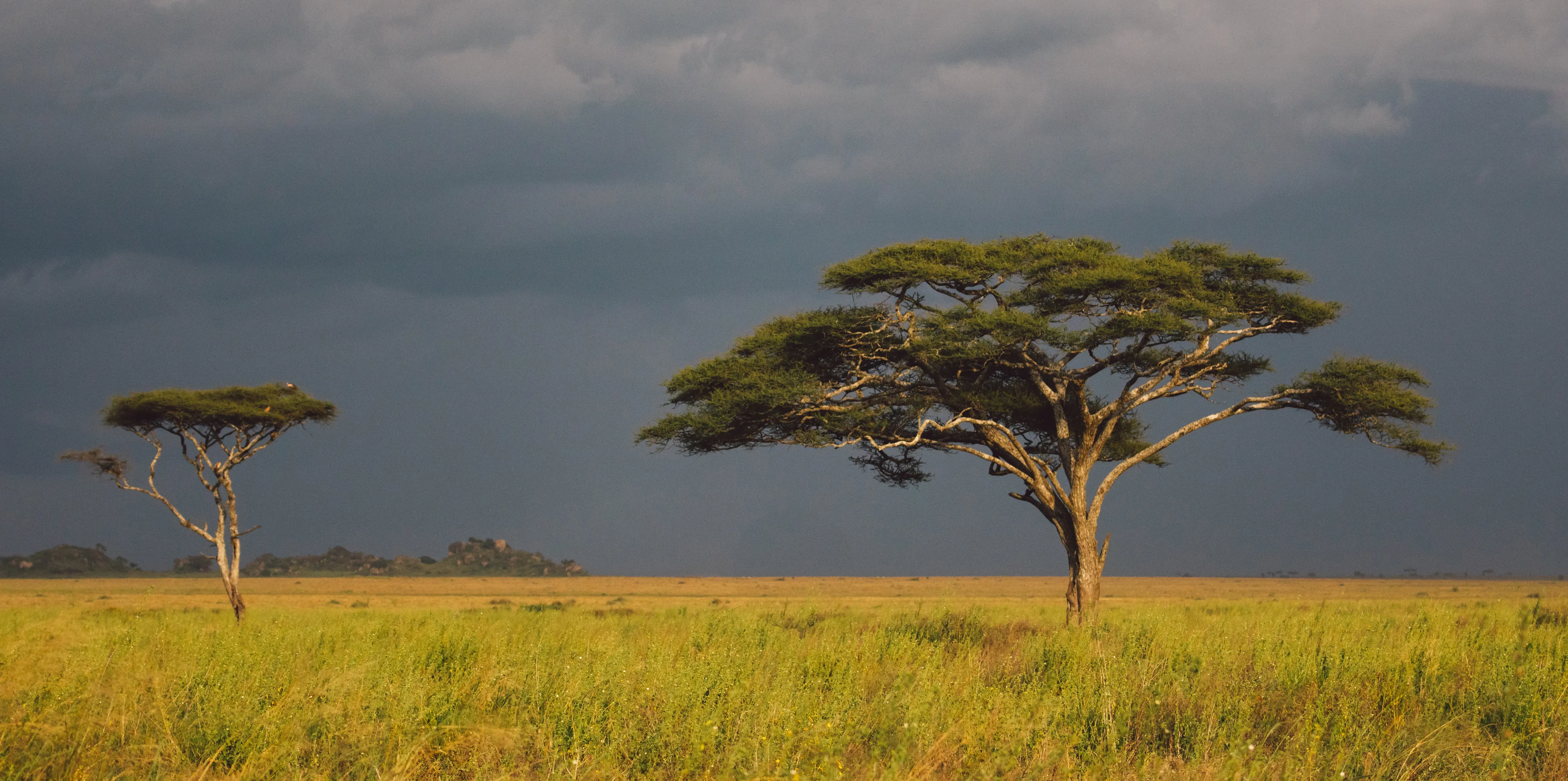

The weather in Tanzania varies depending on the region and the time of the year. The coastal areas are hot and humid, and it rains a lot, especially during the rainy seasons. The centre plateau is much drier and cooler. It's vital to know these weather patterns while planning your Tanzania Safari so that you can have a good time and be comfortable.
Tanzania experiences two rainy seasons: long rains, or Masika rains, from mid-March to May, and short rains, or Vuli rains, from November to mid-January. June to October is the dry season, when the weather is cooler. This is usually the Best Time To Visit Tanzania, especially for safaris and other outdoor activities.
That being said, every season in Tanzania has its beauty and can offer something unique.
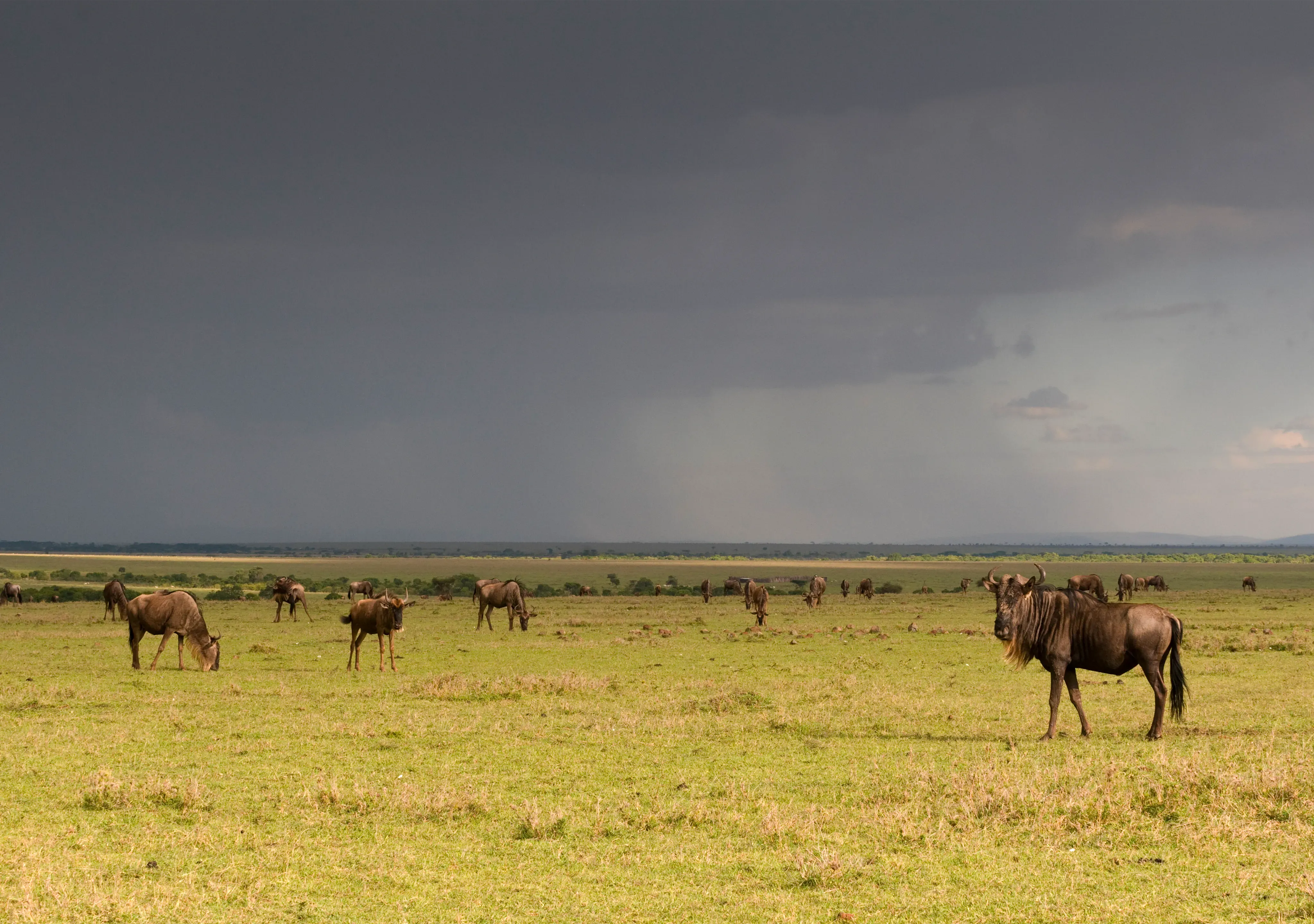
Here's a list of typical Tanzania temperatures and monthly rainfall, which shows how the weather changes throughout the year. This will assist you in deciding when to go on Tanzania Safaris based on what you like.
| Month | Average Temperature (°F) | Average Rainfall (inches) | Best for |
|---|---|---|---|
| January | High: 80-85°F, Low: 58-70°F | 1.2 inches | Clear skies, great for safaris |
| February | High: 85-88°F, Low: 60-72°F | 0.9 inches | Warm and sunny, ideal for outdoor activities |
| March | High: 85-88°F, Low: 60-70°F | 2.5 inches | Beginning of rainy season, warmer with higher humidity |
| April | High: 80-85°F, Low: 60-65°F | 4.0 inches | Peak rains, lush landscapes |
| May | High: 75-80°F, Low: 58-65°F | 3.0 inches | Green landscapes, but occasional rains |
| June | High: 70-80°F, Low: 45-60°F | 0.4 inches | Dry season begins, ideal for safaris |
| July | High: 75-80°F, Low: 45-55°F | 0.1 inches | Cool and dry, perfect for wildlife viewing |
| August | High: 75-80°F, Low: 50-55°F | 0.0 inches | Comfortable temperatures for outdoor adventures |
| September | High: 80-85°F, Low: 55-60°F | 0.0 inches | Dry season continues, ideal safari conditions |
| October | High: 82-85°F, Low: 60-65°F | 0.1 inches | Mild weather, end of dry season |
| November | High: 80-85°F, Low: 60-65°F | 2.0 inches | Start of short rains, fewer tourists |
| December | High: 80-85°F, Low: 60-65°F | 2.5 inches | Light rains, lush landscapes, and birdwatching |
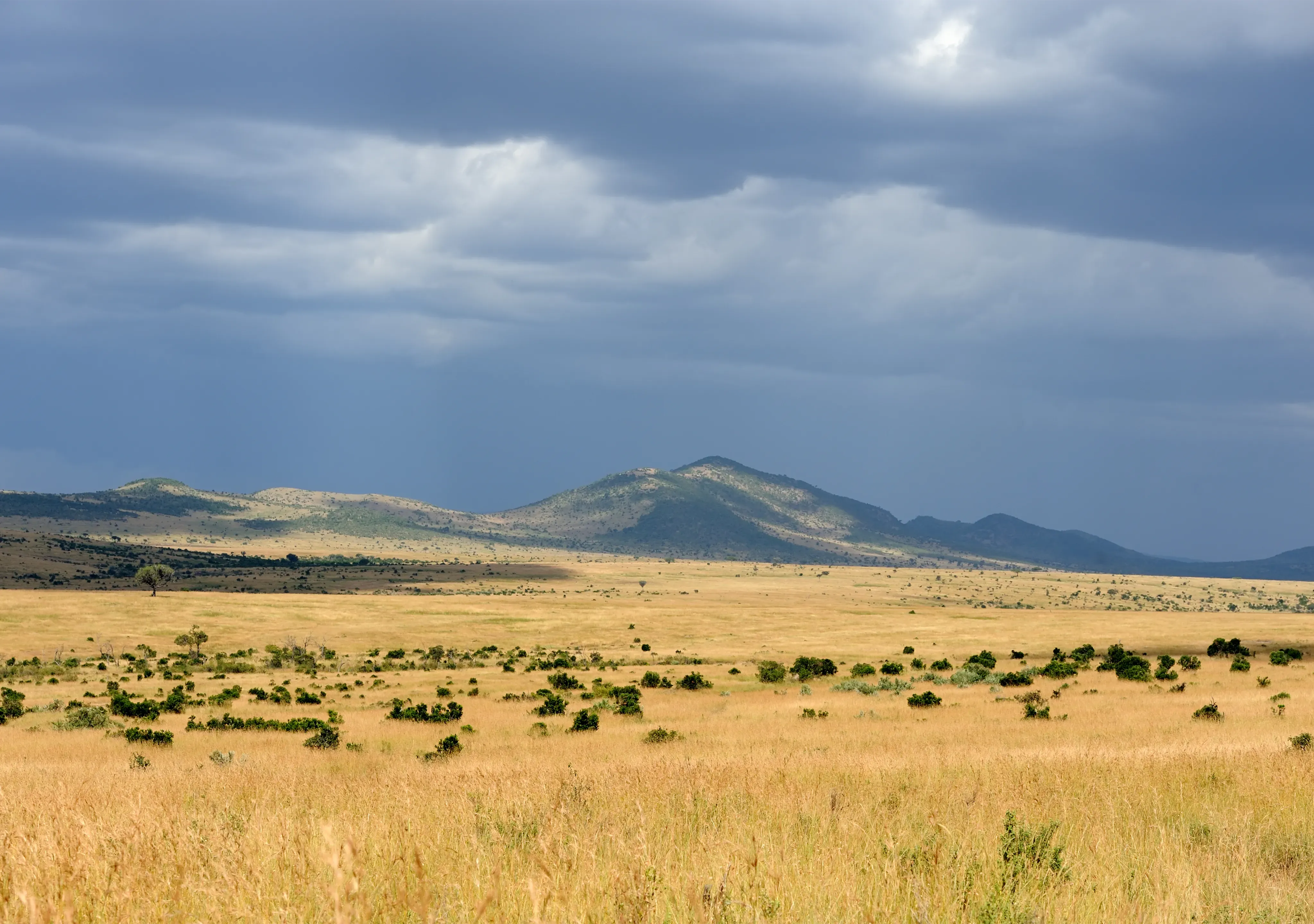
January is the last month of the short rainy season, and the dry season starts to take hold. It's sunny outside, and the temperature during the day is in the 80s°F. At night, it drops to the upper 50s°F to the low 70s°F. This is one of the Best times to go on a safari in Tanzania because the rains have made the terrain lush and the sky is clear, making it easy to see wildlife.
February is usually the hottest month of the year, with highs in the upper 80s°F. There may be some short, scattered showers from time to time. The weather stays nice and warm all day, making this an excellent time for safaris and other outdoor activities. Bring a rain jacket just in case, but light, breathable clothes are best.
As the Masika rains begin in mid-March, the temperatures remain high. It reaches mid-80s°F during the day. The air gets more humid, and it rains a lot in the afternoon. This time of year, it's important to bring waterproof apparel. You can stay dry while enjoying the beautiful scenery with a rain jacket and poncho.
April is the month when the Masika rains are at their peak. The weather is warm, and it rains a lot in the afternoon. The temperature stays in the 80s°F, and the rain makes the countryside bright green. If you are going to Tanzania this season, be sure to add rain gear to your Tanzania Safari Packing List so you can stay dry and comfortable. It's still a great time for people who love nature to experience Tanzania at its most beautiful.
The rains keep coming in May, but you’ll see more bright days. The weather can be unpredictable, and the terrain is lush, but it's still fantastic for seeing wildlife. The weather is nice, with warm days and cold evenings. Waterproof layers are still needed to keep you safe from rain.
Tanzania's dry season starts in June, and the weather gets cooler again. Be ready for clothing because early morning safaris can be cold, especially at higher altitudes like Ngorongoro Crater. During the day, temperatures range from the mid-40s°F at night to 80°F. This is a great period for safaris because there are fewer showers and bright skies.
July is another cold and dry month, especially in the mornings and evenings. Animals gather around water sources; therefore, the dry weather is the greatest time to see them. During the day, the temperature is in the upper 70s°F, but in the mornings and evenings, it can dip to 40°F. Bring warm clothes.
August is usually dry and pleasant, with daytime highs in the upper 70s°F and morning and evening lows in the mid-50s°F. The dry weather is perfect for safaris since animals are easy to see around drinking holes. Be ready for chilly mornings, but the afternoons are warm and comfortable, so it's a fantastic time to visit Tanzania's National Parks.
September
In September, the weather is nice, with daytime highs in the low 80s°F. It can still be cool in the mornings and at night, so you might need a light jacket or jumper. The dry season goes on, and it's a great time to see wildlife because animals concentrate near small bodies of water.
October is the last month of the dry season. The weather is still sunny and clear, but the temperatures are starting to increase again. The highs throughout the day are in the mid-80s°F, while the nights stay cool. This month, Tanzania's weather is still great for safaris, but it might be hotter than it was during the dry season months.
The short rains come back in November, but they are usually not as strong as the Masika rains. This is a terrific time to see birds because migratory birds are coming. The weather is nice, with temperatures ranging from the mid-60s°F at night to the low 80s°F throughout the day. Have a rain jacket ready for when it rains.
The short rains keep coming in December, although they aren't as strong as they were during the rainy season. The days are in the low 80s°F, while the nights are cool. The rains have made the land lush and green, so it's a nice time to visit if you don't like people.
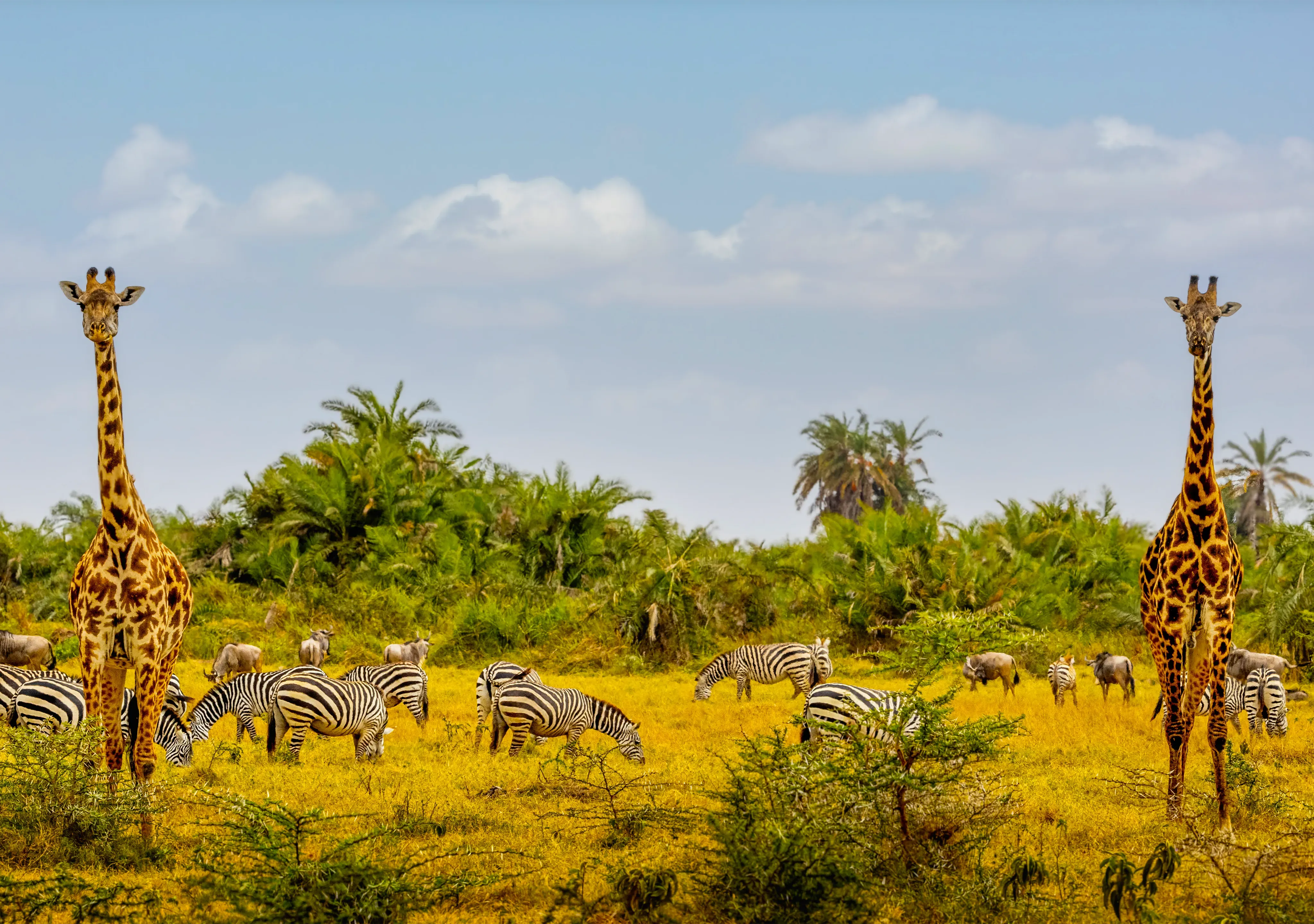
The dry season, which lasts from June to October, is the Best time to go on safaris in Tanzania.
The weather is cooler and there is less rain during this time, which makes it simpler to explore Tanzania's parks.
The dry season is also when the Great Migration happens in the Serengeti National Park, which is a great time to see one of nature's most amazing phenomena.
The rainy season has its own charm for anyone who doesn't mind a little rain and wants to see the environment at its most beautiful.
One of the best things about going during the rainy season is that there are fewer tourists, and prices for places to stay are lower.
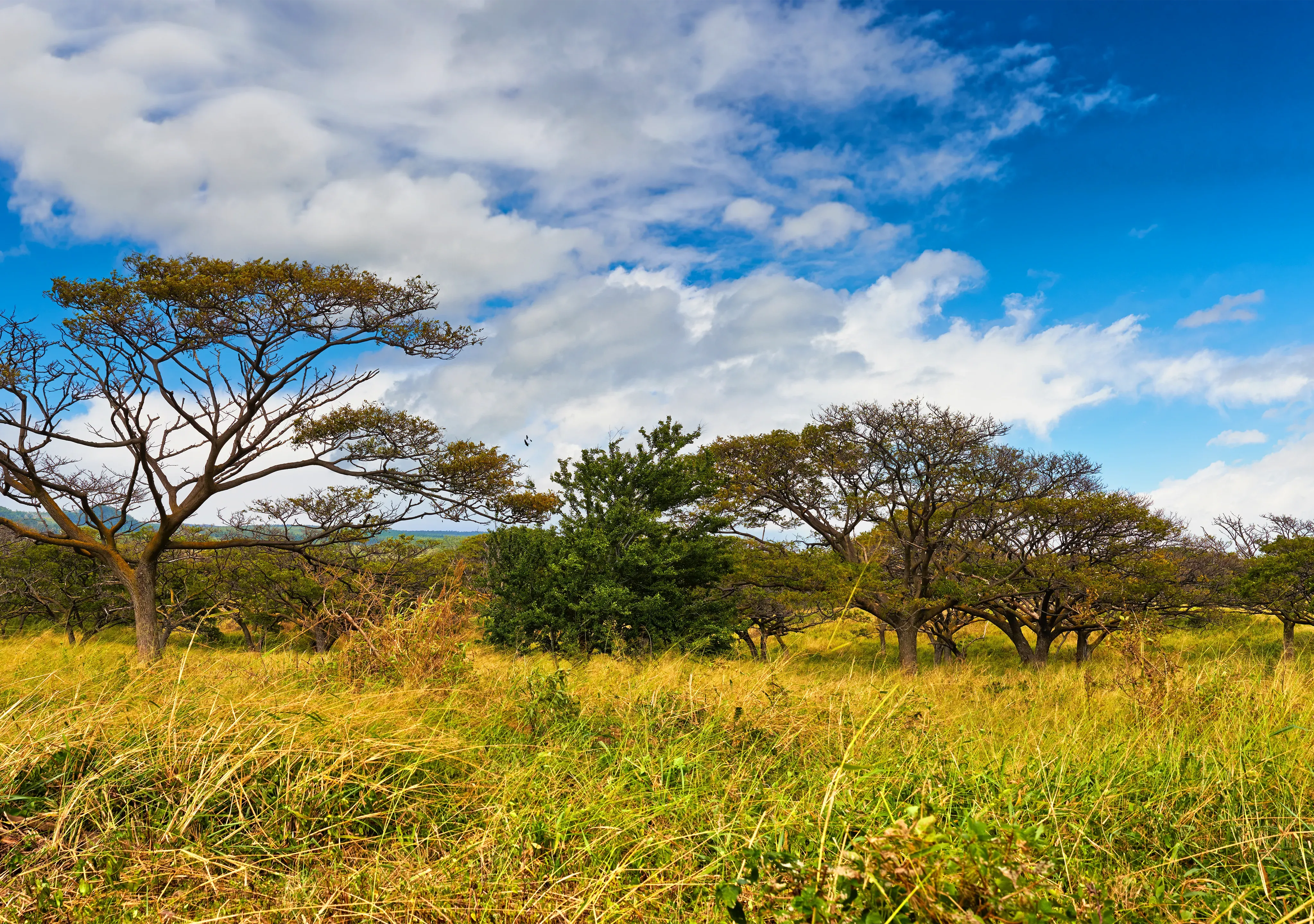
Because the weather in Tanzania might change a lot, it's important to pack layers of clothing. This is true especially when you go from one area to another at a different altitude. That's why layering is the best way to stay warm.
Having the correct gear will make your trip more comfortable and fun, whether you're hiking to high places like Ngorongoro Crater or relaxing in the warm weather.
Before you go, check the weather forecast. Sometimes, weather-related problems can mess up your trip plans.
If you're going on a safari, make sure to follow our Tanzania Safari Packing List, which has sun protection, light clothes for the day, and warm layers for the early mornings.
Besides that, getting Tanzania Travel Insurance is a good idea for extra peace of mind, especially during the rainy season when things can change quickly.
No matter when you choose to travel, one thing is for sure: Tanzania will bless you with warm hospitality. So, without any worry, start planning your Tanzania Safari. In case of any doubt regarding your trip dates, feel free to contact us.
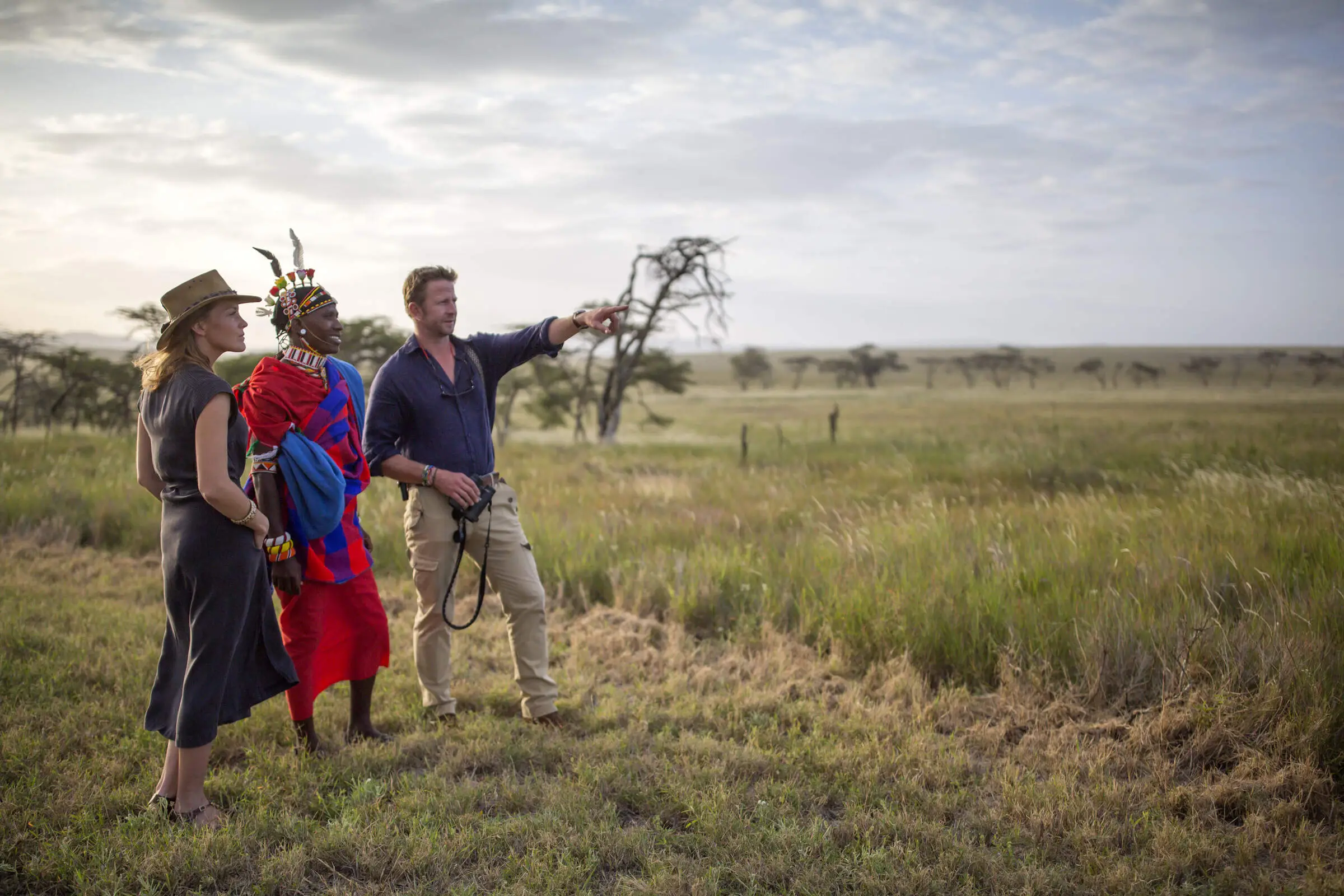
It is a long established fact that a reader will be distracted by the readable content of a page when
We use equipment of international standards & our guides are trained in First aid & personal protection equipment
We use equipment of international standards & our guides are trained in First aid & personal protection equipment
We use equipment of international standards & our guides are trained in First aid & personal protection equipment
Our travel guide is made to save you time. It points you to the right parks, climbs, and activities, while sharing tips only locals know. Your dream Tanzania trip starts with good information, and we’ve put it all together for you.
We believe travel should never feel like a template. That’s why we design each safari or climb with you in mind. Whether you dream of quiet mornings by the crater rim or standing on Africa’s highest peak, we make it happen. Every route, lodge, and experience is chosen to fit your idea of perfect travel.